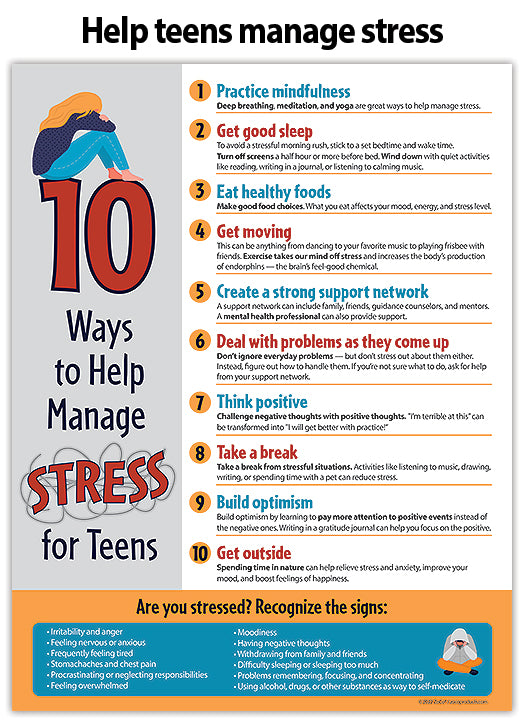More Than Just Growing Pains: The Reality of Teenage Stress
-
Technological and Social Media Pressure: The constant connection to smartphones and social media has been linked with increased levels of stress, anxiety, and depression in teenagers. The fear of missing out, comparing oneself to others, cyberbullying, and the need to maintain a perfect online persona can be mentally taxing.
-
Academic Pressure: The importance placed on getting good grades, being involved in extracurricular activities, and securing a spot in reputable universities or colleges has increased over time. This has subjected teenagers to long hours of studying, which can contribute to burnout and stress.
-
Economic and Environmental Worries: Global concerns, like climate change, economic downturns, or political unrest, can add to the stress levels of teens. They may worry about their future job prospects, the environment they will inherit, or the state of the world in general.

-
Personal and Social Challenges: The teenage years are marked by significant personal growth and changes, including hormonal changes, identity exploration, and relationship dynamics. Peer pressure, relationship issues, and striving for acceptance can be major stressors.
-
Post-pandemic Effects: The COVID-19 pandemic affected mental health across all age groups. The after-effects, like adjusting to new norms or coping with loss, can still be felt in subsequent years and might be contributing to teen stress in 2023.
-
Over-scheduling: The push for teens to be involved in multiple activities—sports, clubs, part-time jobs, volunteering, etc.—can leave them with little downtime or opportunities to relax and recharge.
-
Uncertainty about the Future: With the rapid pace of technological and societal change, teens might feel uncertain about their place in the future or how to prepare for it.
-
Mental Health Awareness: While it's a positive thing that there's more awareness about mental health, it can also mean that more teens are identifying and vocalizing their stress and anxieties, leading to a perception of increased stress.
-
Information Overload: With the internet, teens have access to a vast amount of information. While this is beneficial, it can also lead to overwhelm and difficulty in discerning fact from misinformation.

Leave a comment